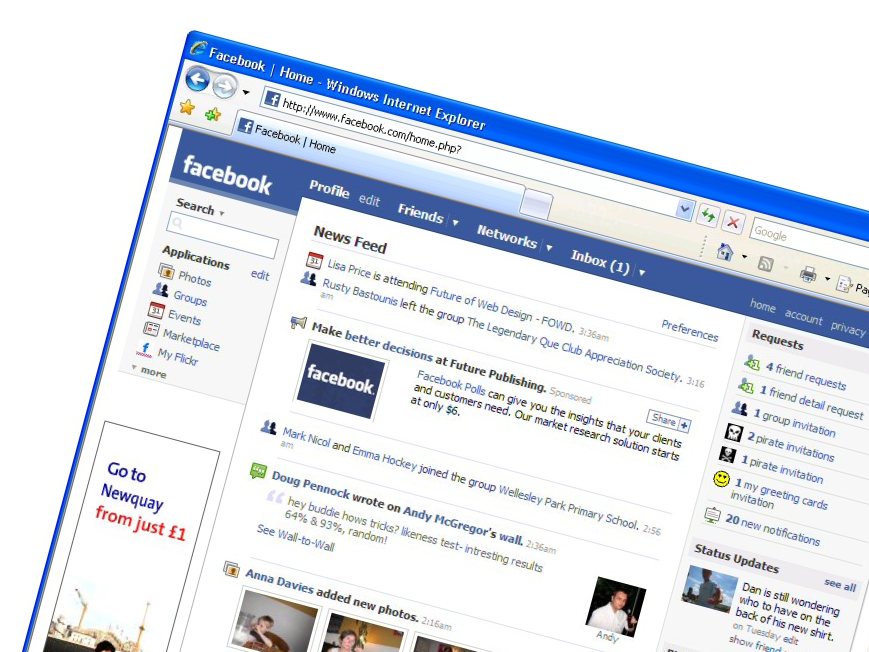Facebook gets in the way of UK teens' homework
Plus, ISPs need to police customers, according to new survey

Sign up for breaking news, reviews, opinion, top tech deals, and more.
You are now subscribed
Your newsletter sign-up was successful
The UK’s 15-to-19-year-olds are spending far less time doing homework these days due to social networking sites such as Facebook, MySpace and Bebo.
That's according to the 2008 Digital Entertainment Survey from Entertainment Media Research, where nearly a third of 15- to 19-year olds admitted to doing less homework as a result of social networking sites.
Hardly shocking
Not only that, while our teens are ignoring their teachers' pleas to update their homework diaries, they are also ignoring more traditional forms of media. Specifically, they don’t watch as much telly as they used to.
The research surveyed 1,608 UK consumers aged 15-54 in January 2008. It gives a good overview and analysis of media and home entertainment consumption trends and attitudes.
The other main findings of the survey were that Blu-ray is predicted to be the highest growth digital entertainment activity in 2008 and that consumers want social networks to become major content distribution platforms.
There is also a huge interest in on-demand programming as long as it's free and personal digital video recorders are seriously affecting advertising reach.
Sign up for breaking news, reviews, opinion, top tech deals, and more.
Piracy is rampant
These findings will hardly be shocking to most media-savvy and tech-savvy aware adults.
But what might be of more concern to many home computer users (specifically to the 70 per cent who admit to illegally downloading music, movies and software and don’t think they will ever be caught) is that the research also found that 7 out of 10 of British ‘pirates’ would cease pirating if they received a warning from their ISP.
Alexander Ross, music and technology partner at Wiggin, the law firm that commissioned the research, says: "These findings are encouraging for content owners and demonstrate that the government's proposals to compel ISPs to take measures to control illegal file-sharing could have a huge impact when implemented."
ISP’s responsibility?
How ISPs are meant to fund and resource the immense job of tracking and policing all the many millions of users downloading illegal content is of course a hugely complex matter. And we will no doubt see much debate about it over the coming months.
A representative for the Internet Service Providers' Association reiterated their stance on the matter, telling TechRadar that its members were 'mere conduits' of information in the eyes of the law courts.
"Any attempt for ISPs to be involved with combating illegal sharing of copyright protected materials – whether legislative of self-regulatory – needs to be legal, workable and economically sustainable, with cost recovery secured for ISPs," we were told.
"Neither the Internet Services Providers’ Association nor our members support abuses of copyright and intellectual property theft. This is reflected in our commitment to finding a practical solution to address rights-holders’ desire for a workable approach to issuing notices on individual infringers."
The TechRadar hive mind. The Megazord. The Voltron. When our powers combine, we become 'TECHRADAR STAFF'. You'll usually see this author name when the entire team has collaborated on a project or an article, whether that's a run-down ranking of our favorite Marvel films, or a round-up of all the coolest things we've collectively seen at annual tech shows like CES and MWC. We are one.